Amazing Epic Photos of Saturn
Categories: Space
By Pictolic https://pictolic.com/article/amazing-epic-photos-of-saturn.htmlSaturn boasts the most majestic planetary rings in the Solar System, but they are not the only ones that make this beautiful gas giant unique. After all, it is also the farthest planet from Earth that we can see with the naked eye.
However, the distance of 1.195 billion kilometers does not make it possible to observe Saturn from Earth in the way that NASA's Cassini spacecraft, which has been orbiting this planet since 2004, manages to do.
While some of Cassini's photos show Saturn as a calm giant floating in space, others reveal the dynamic and turbulent nature of its windy surroundings.
Here are some of the most incredible images taken by Cassini in recent times.
(21 photos in total)
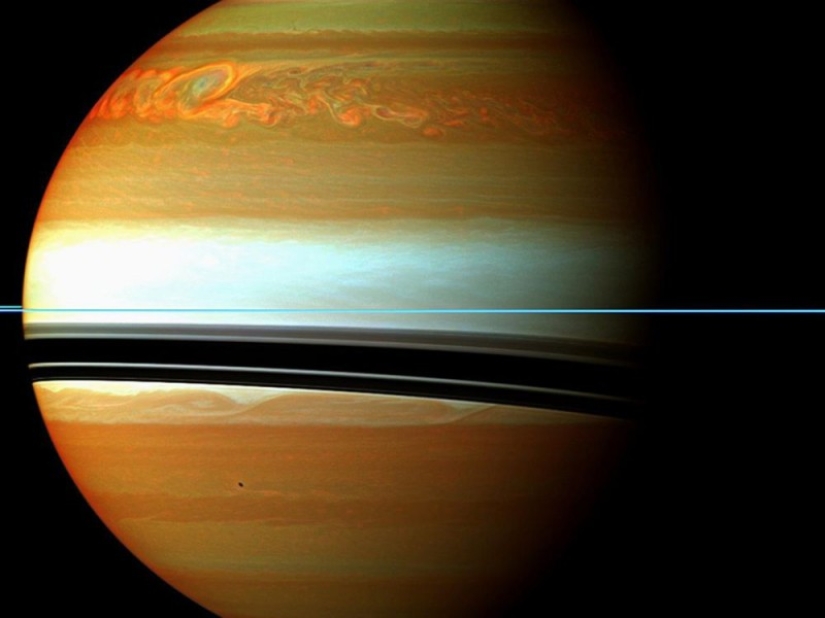 Source: deadbees.net
Source: deadbees.net
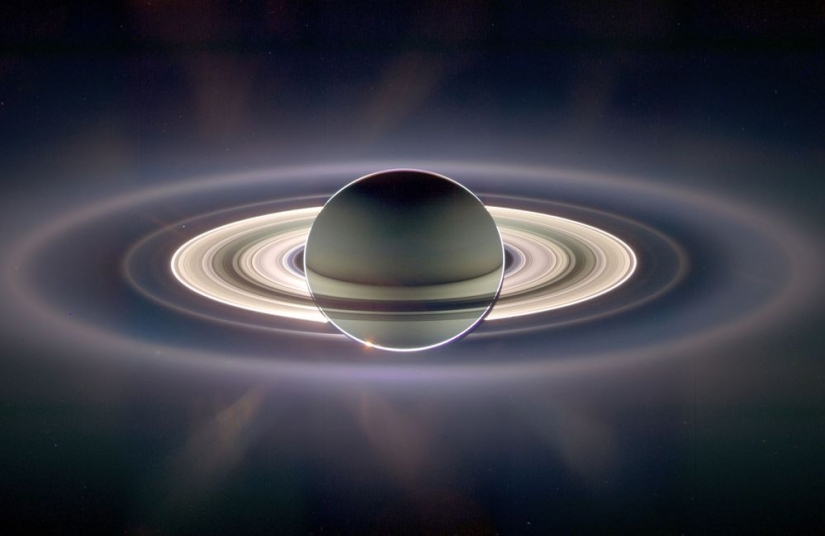
1. In this image, the Sun is directly behind Saturn, billions of kilometers away. Light from the Sun passes through the rings of Saturn, showing the previously invisible ring E, located on the outside.
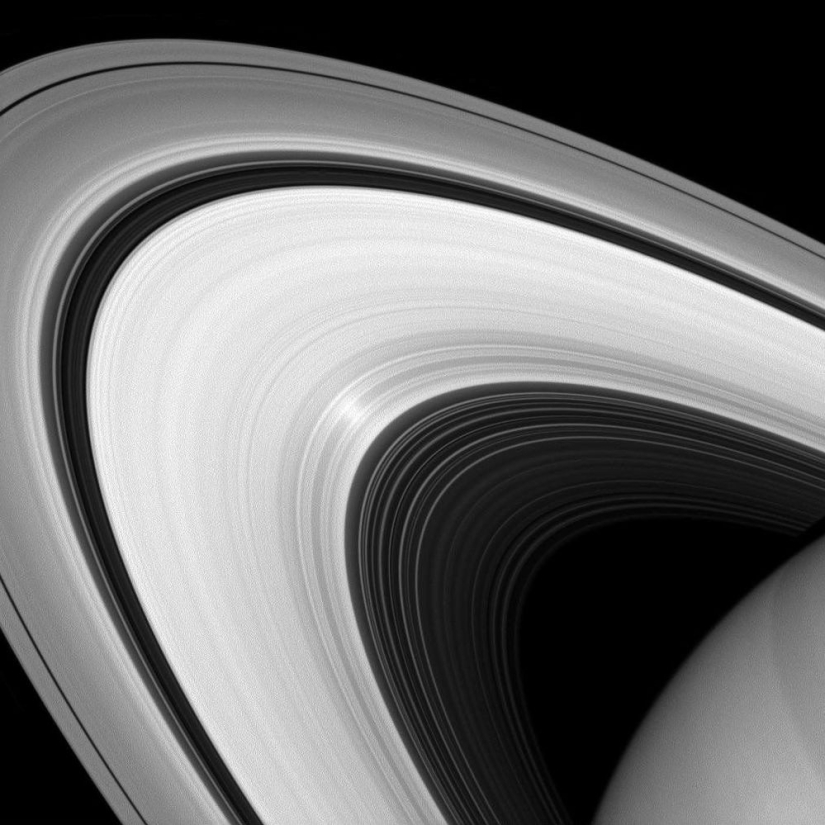
2. Here is a detailed view of the four inner rings of Saturn. The closest to the planet is the ring D, and the next on the way out are the rings C, B and A. The rings are separated by a thin empty gap.
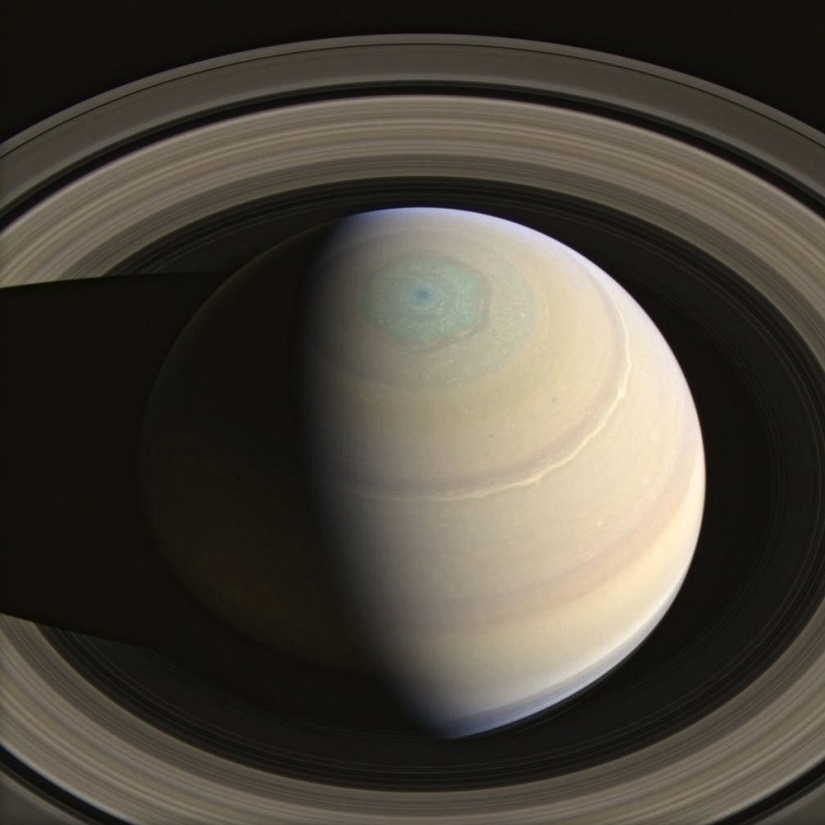
3. This image shows the north pole of Saturn with a hexagonal hurricane of colossal size.
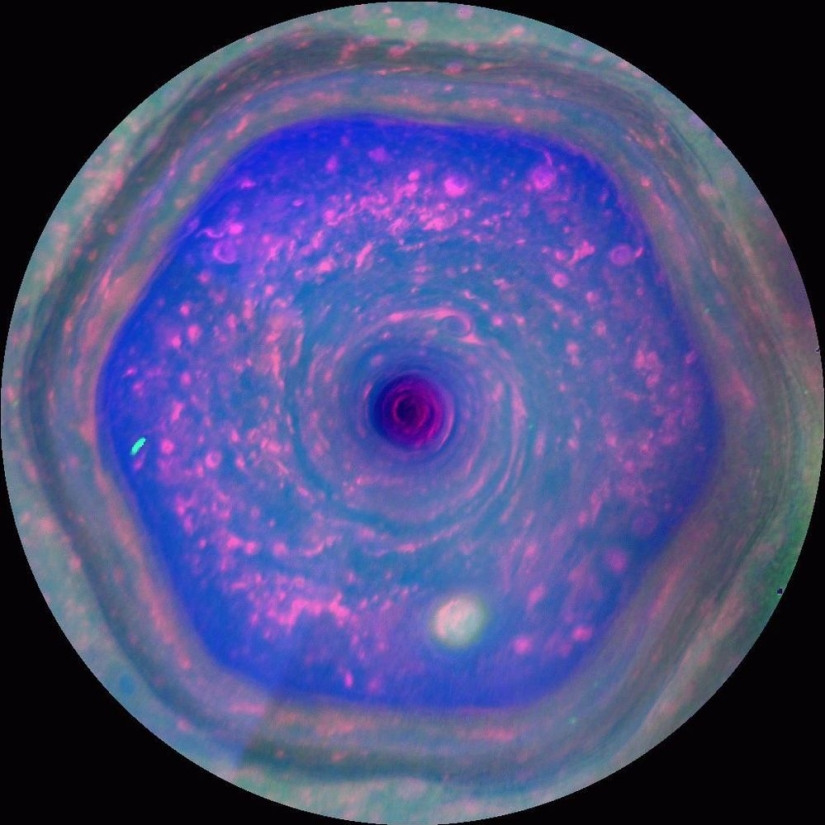
4. The bizarre shape of this giant storm, shown in conventional colors, is explained by the movement of gas vortices at different speeds. Scientists have managed to obtain similar hexagons in a laboratory on Earth using water.
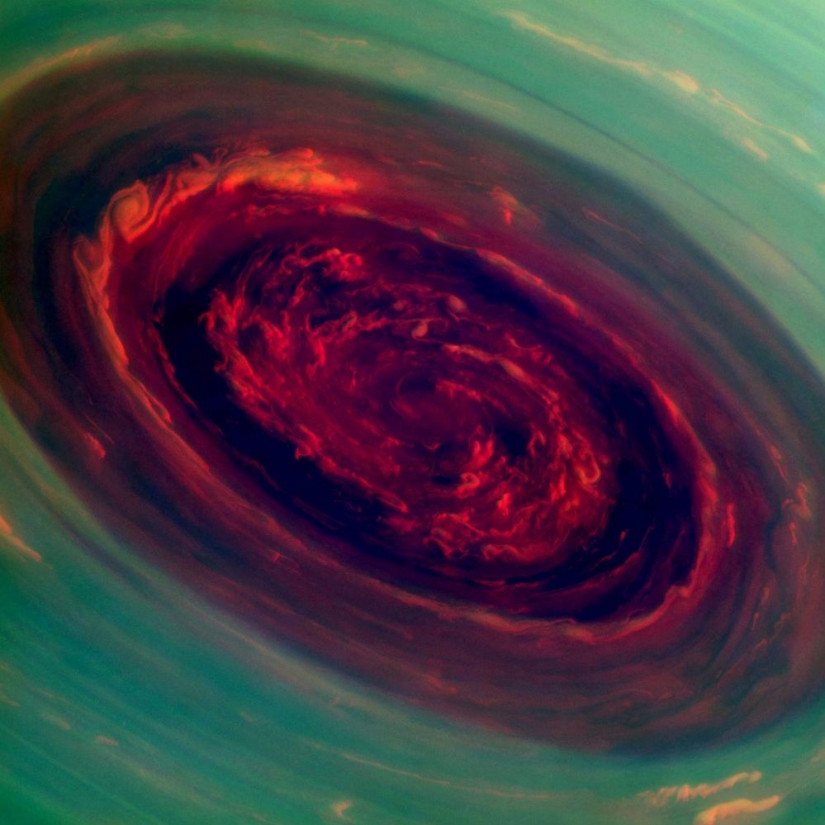
5. Cassini filmed a storm with a wind speed of 530 kilometers per hour. A conventionally colored image with a red vortex center.
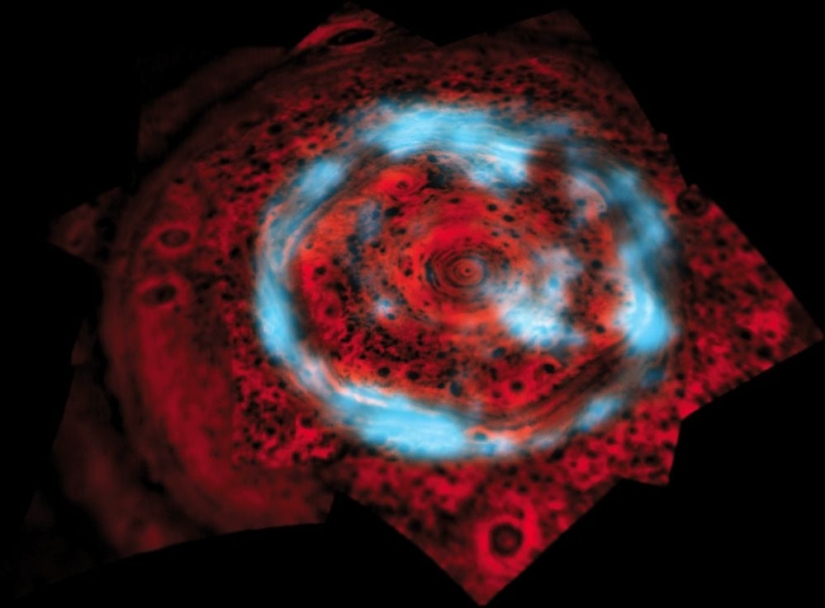
6. There are thunderstorms at the north pole of Saturn. Here is one of them in blue behind the hexagon of the hurricane.
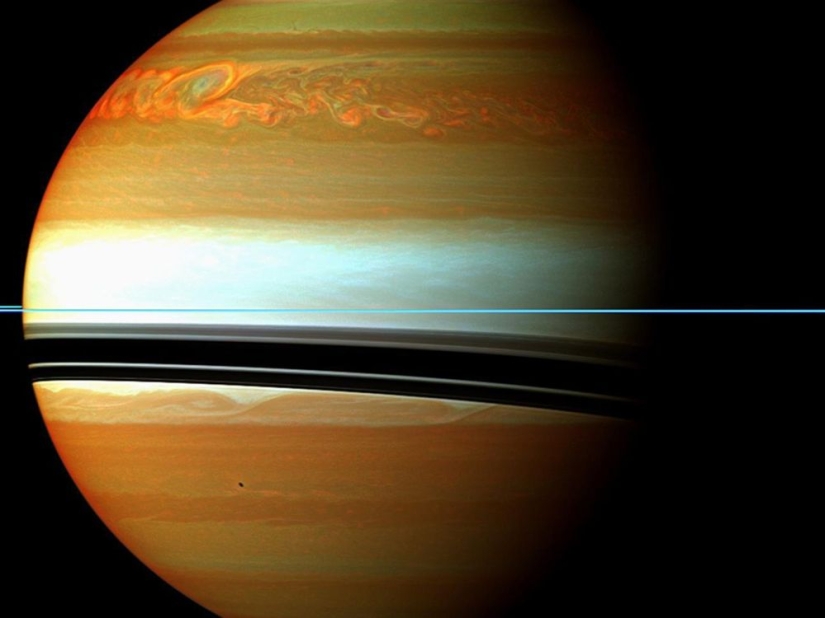
7. In 2010, a storm suddenly began in the northern hemisphere of Saturn. Within just a few months, the storm has grown into colossal bands of swirling gas— neon-orange swirls of conventional color that wrap around the entire planet.
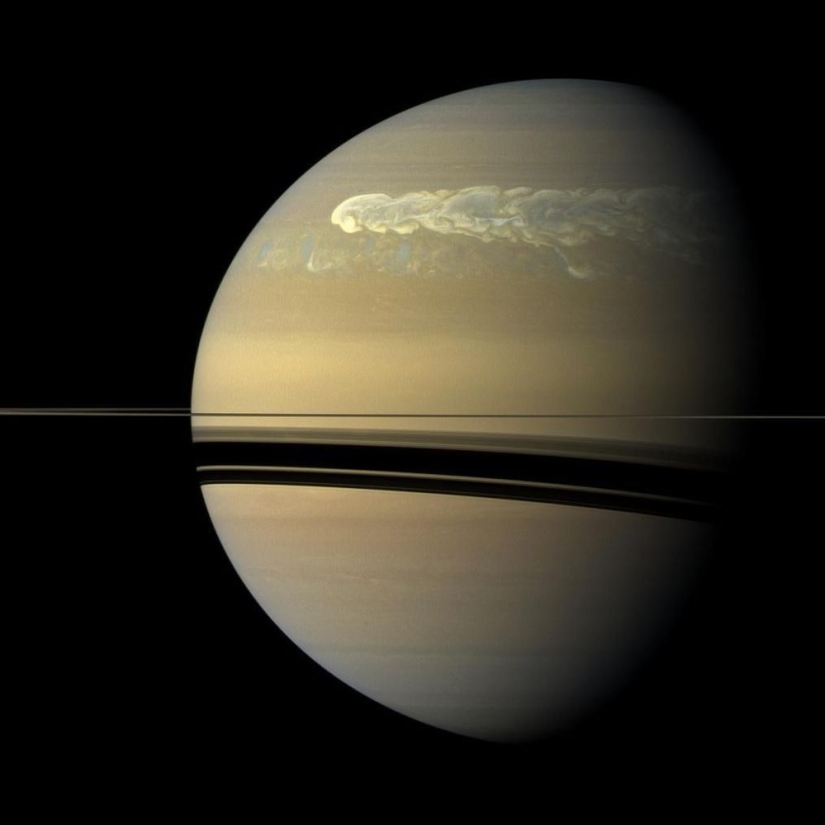
8. The real color of the storm is creamy white, which is why scientists call it the "big white spot". They think that these storms form every summer in the northern hemisphere — every 30 Earth years, but this one for unknown reasons happened ten years earlier than expected.
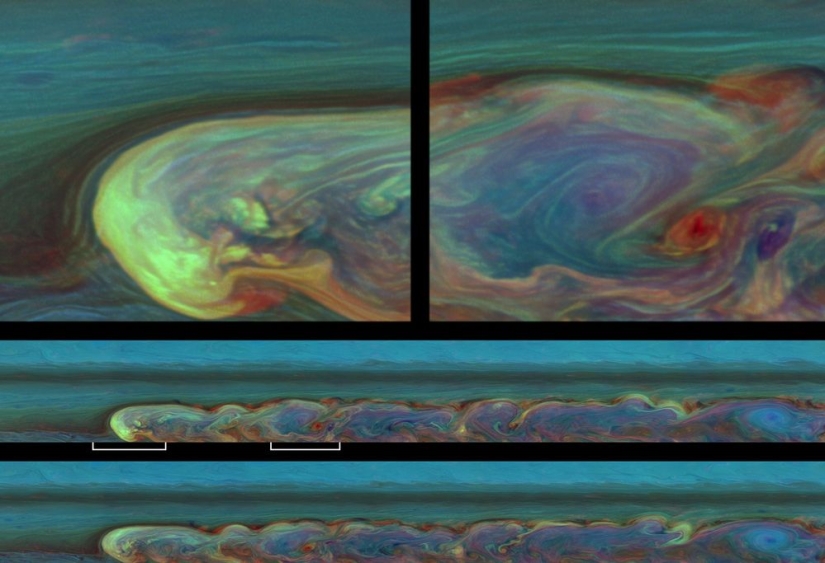
9. Here is a close-up of a storm that lasted a total of 267 days, and a vortex that grew to 12 thousand kilometers.
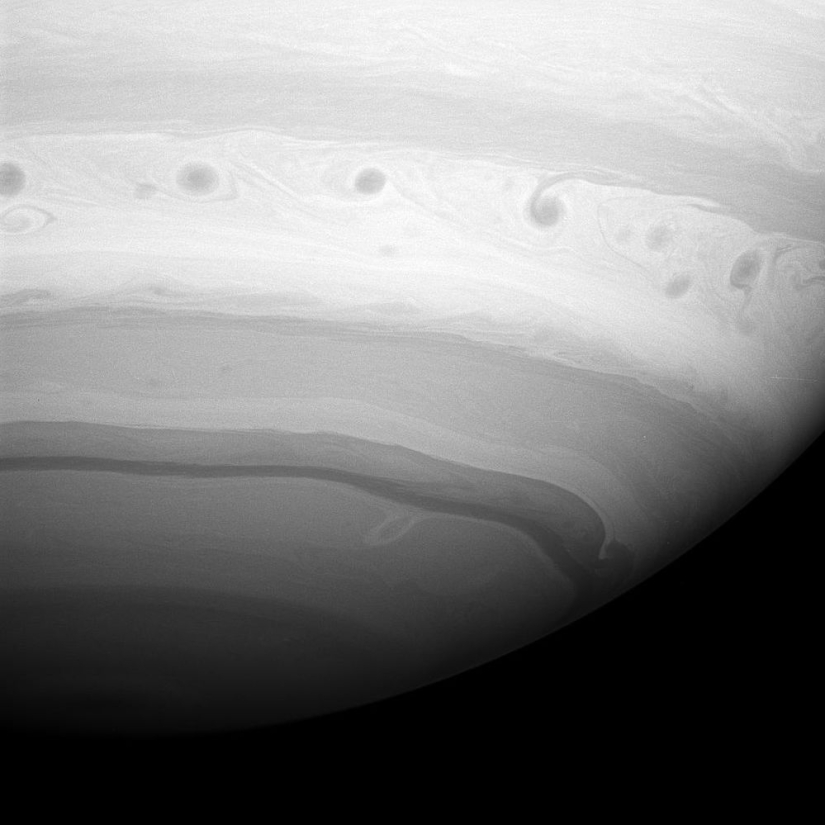
10. These swirls along the southern hemisphere are actually giant vortices in one of the most active regions of Saturn called "Storm Alley", where storms have not stopped since Cassini first discovered them in 2004.
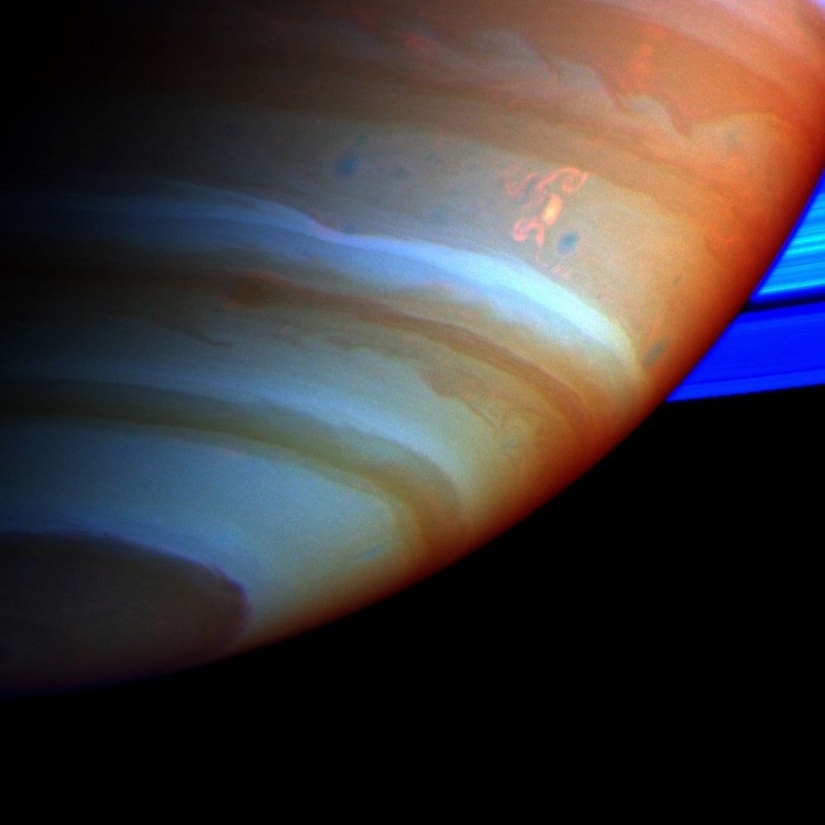
11. The dragon storm, shown in conventional neon-orange colors just above and to the right of the center, is a thunderstorm on the "Alley of Storms" with strong flashes that emit powerful radio waves.
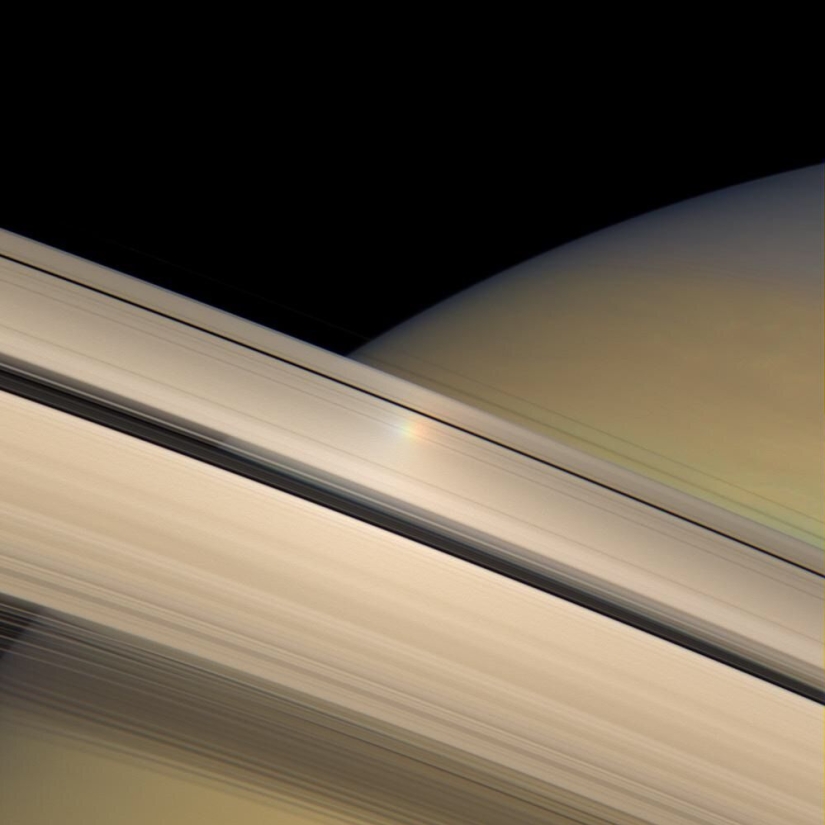
12. This rainbow on the rings of Saturn is actually an artifact that appeared after image processing by scientists, and is not real. Despite this, she makes the photo incredibly beautiful.
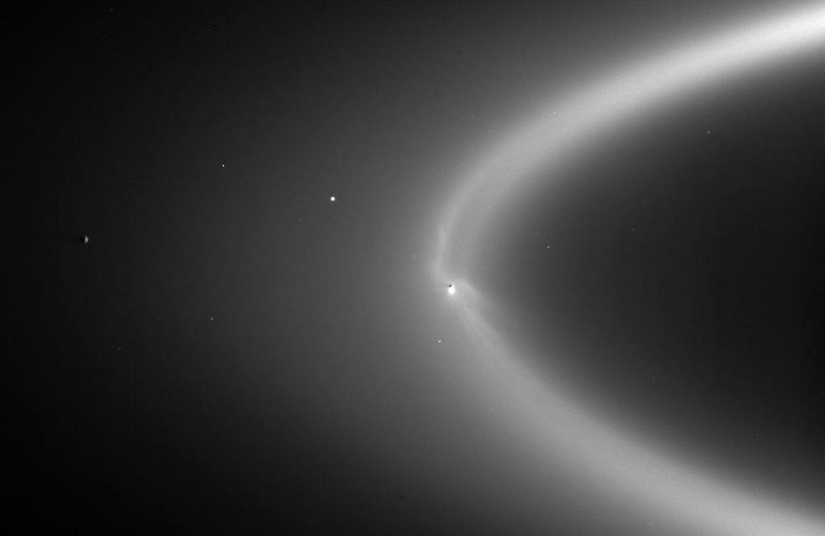
13. Scientists believe that most of Saturn's rings consist of fragments of moons torn apart by the planet's powerful gravity into pieces. However, the source of matter for the E ring is Saturn's moon Enceladus, shown as a black sphere inside the ring.
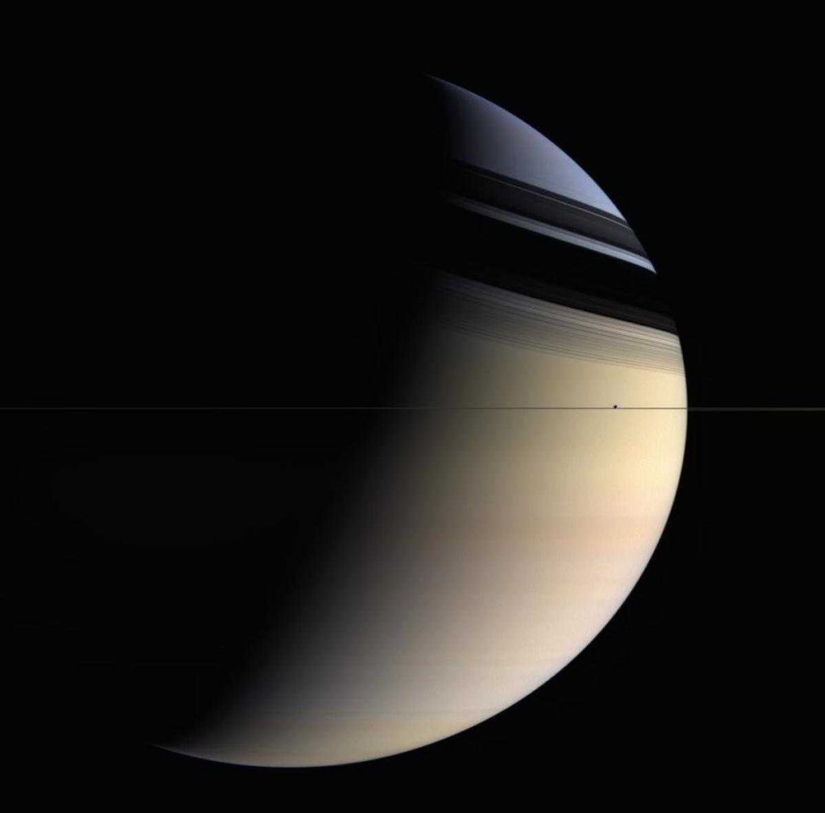
14. View from afar on Enceladus, which is a tiny speck to the right of center just above the thin marking line of Saturn's ring. The rings cast shadows on the entire northern hemisphere in the form of stripes.
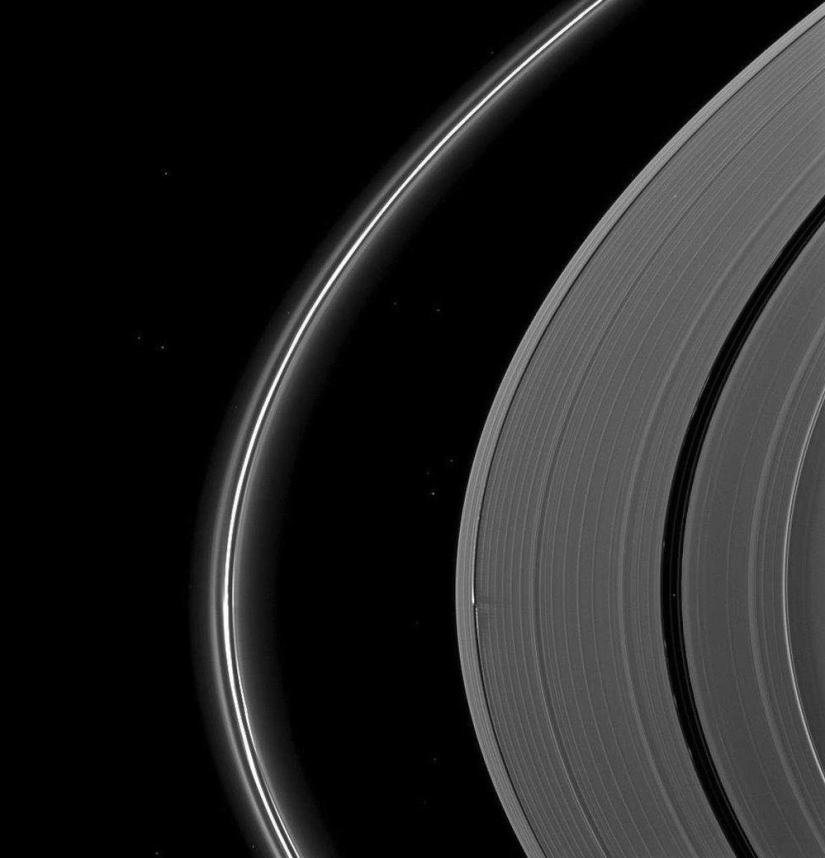
15. Just below the center you can see one of the four shepherd moons of Saturn called Daphnis. Shepherd moons are tiny moons that orbit very close to Saturn and its rings often cross.
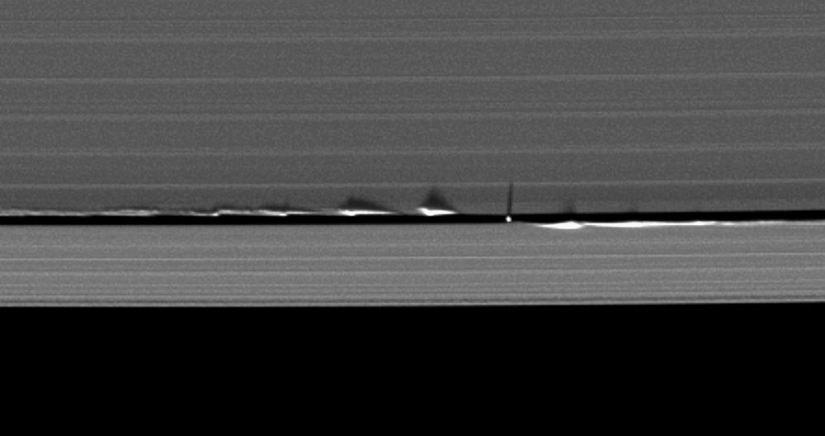
16. Cassini sees shepherd moons by the disturbances they leave while moving through the rings. Here is a closer view of Daphnis — 8 kilometers across — creating waves on Saturn's ring.
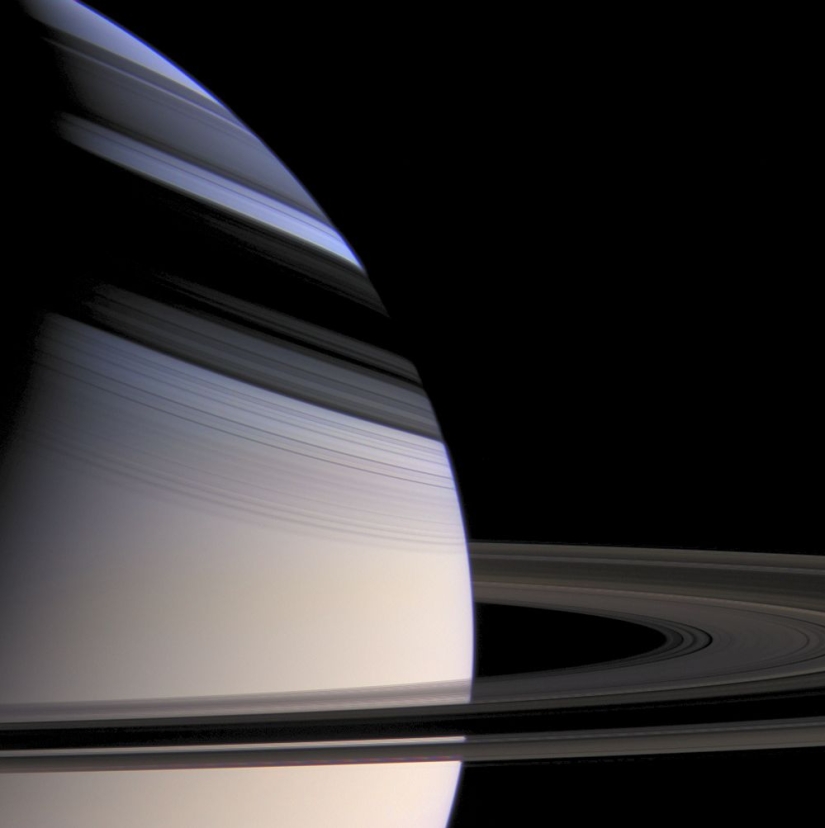
17. This image in natural color, taken from a distance of 1 million kilometers, shows a mysterious change in the color of Saturn from bluish in the north to golden in the south. Scientists do not yet know why this is happening.
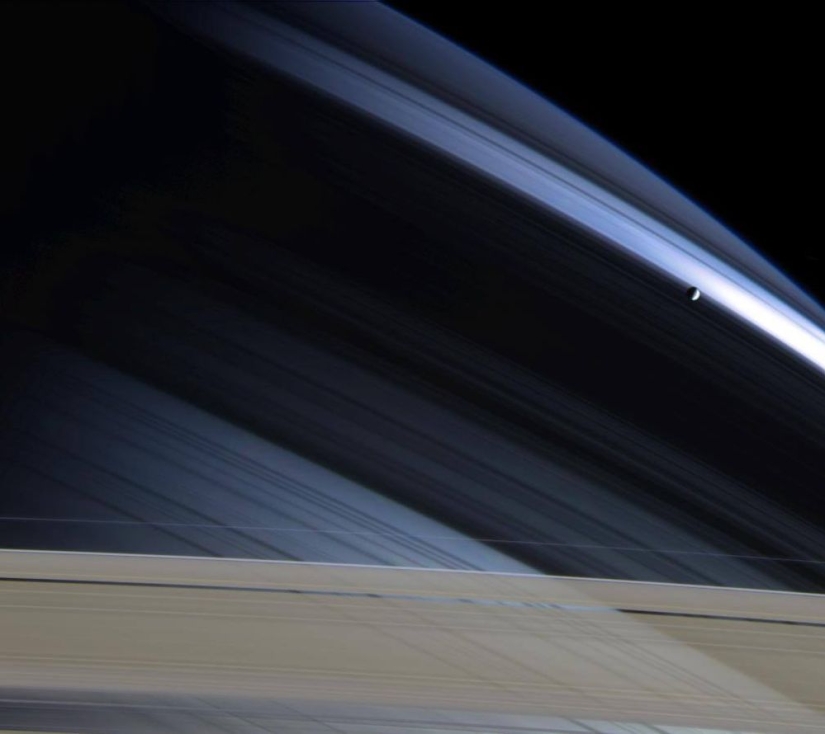
18. One of the four inner moons of Saturn Mimas is shown here against the background of the bluish hue of the northern hemisphere of the planet.
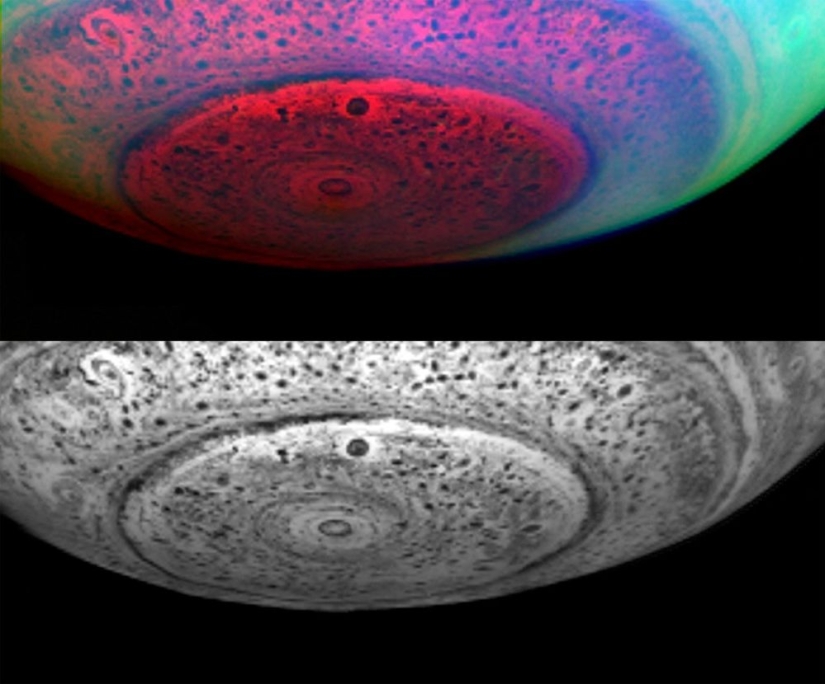
19. The size of the storm at the south pole of Saturn is about one third of the size of the hexagonal storm at the north pole — 8 thousand kilometers. These two photos show different layers and densities of the storm, in the upper image — in conventional colors.
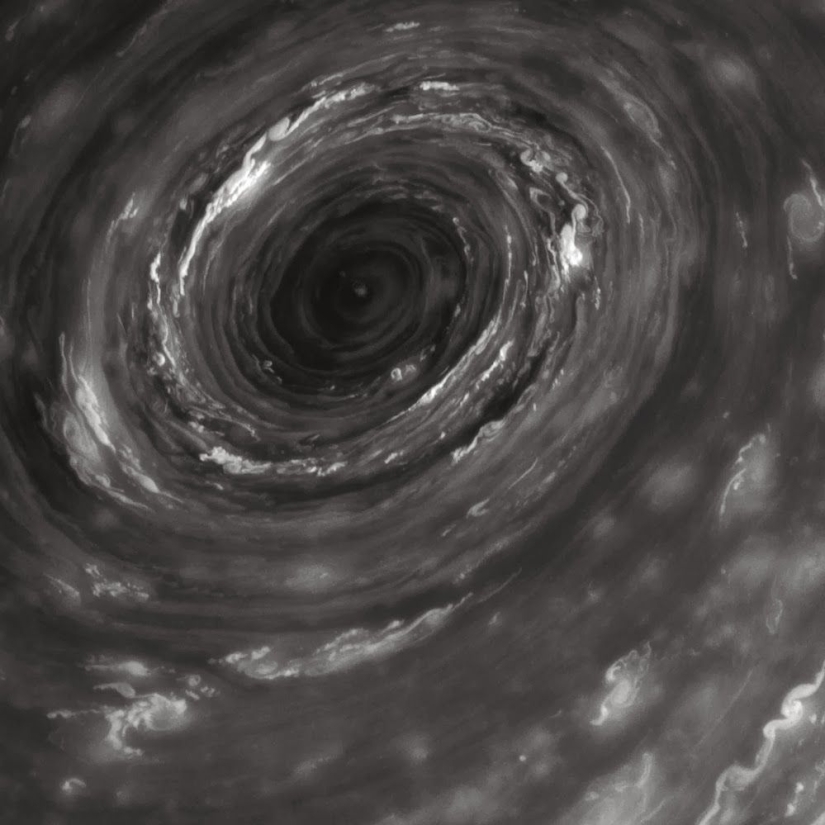
20. This close-up shows the eye of the storm in the south of Saturn, up to 60 kilometers deep and with wind speeds up to 560 kilometers per hour.

21. And at the end, look at this perspective: in the lower right corner there is a small arrow pointing to a tiny pale blue dot. This is Earth. 764 Earths could fit inside Saturn.
Recent articles

It's high time to admit that this whole hipster idea has gone too far. The concept has become so popular that even restaurants have ...

There is a perception that people only use 10% of their brain potential. But the heroes of our review, apparently, found a way to ...
Related articles

The life of people on other planets no longer seems like a perfect fantasy, as a few decades ago. Space exploration is being ...

Life on our planet is impossible without the Sun. And perhaps it is difficult to find something more beautiful than sunrise or ...

After one of the main exciting adventures throughout his life — dip the bottom of the Mariana trench, the Director James Cameron ...

New Year's is a time to surprise and delight loved ones not only with gifts but also with a unique presentation of the holiday ...